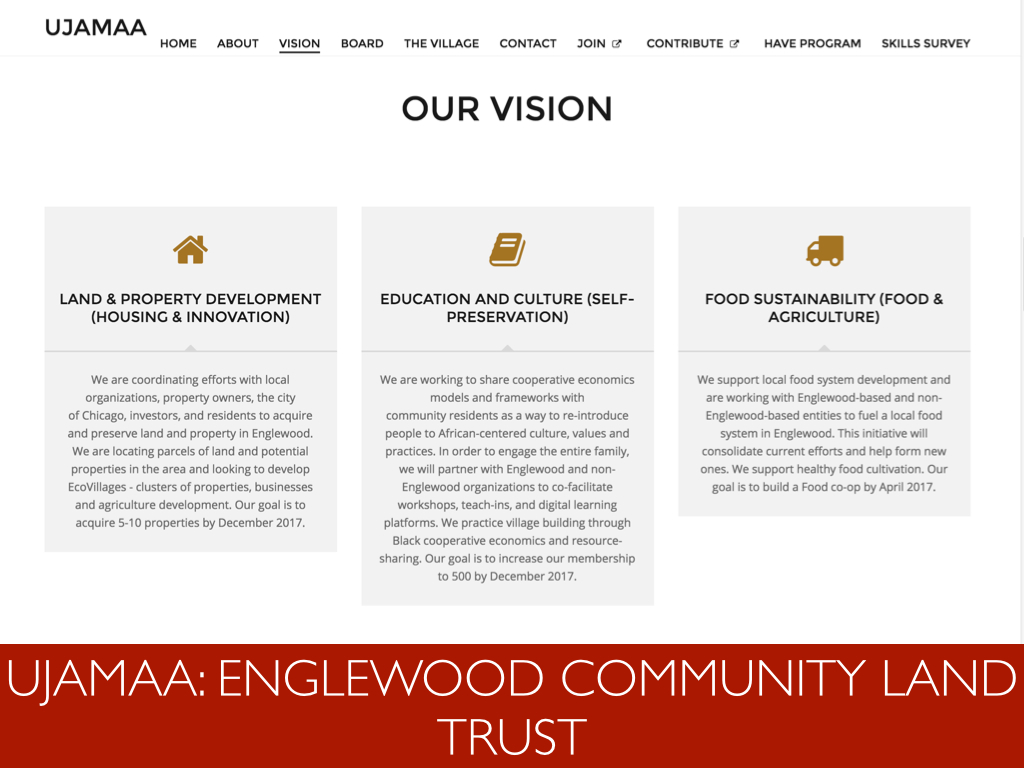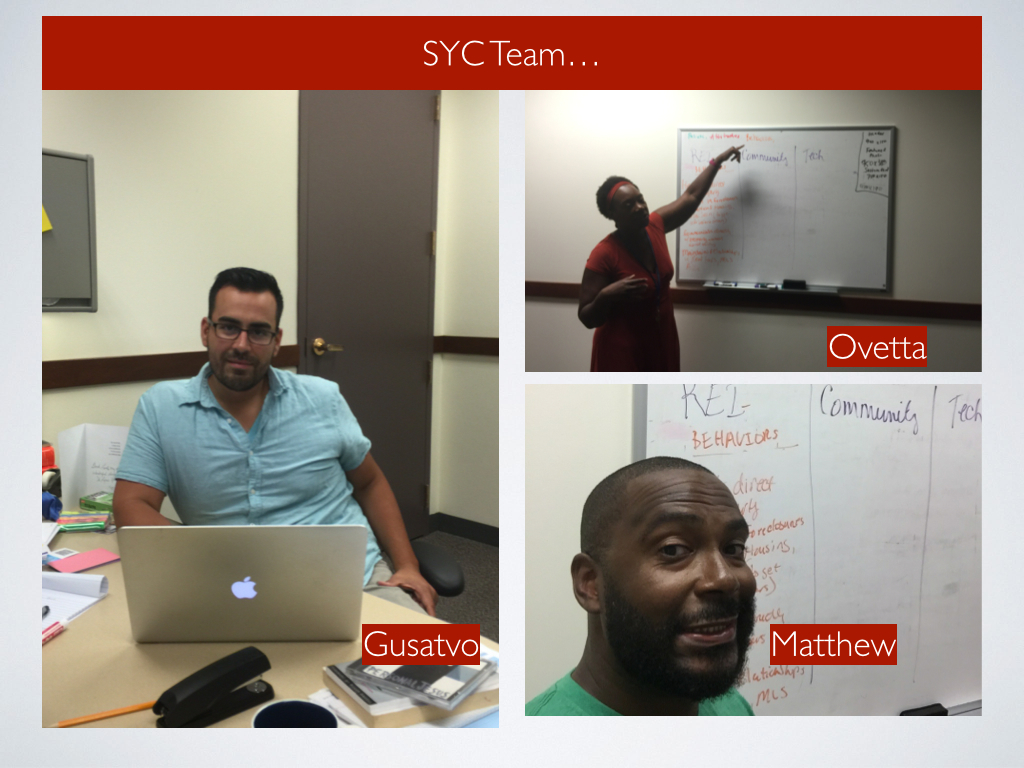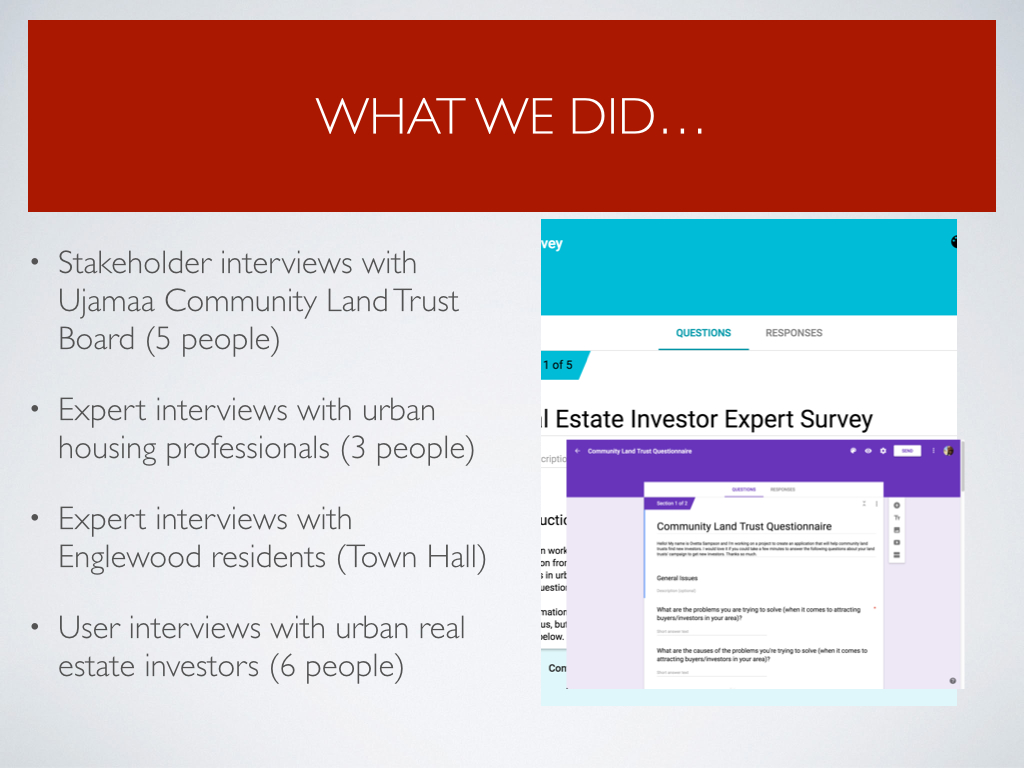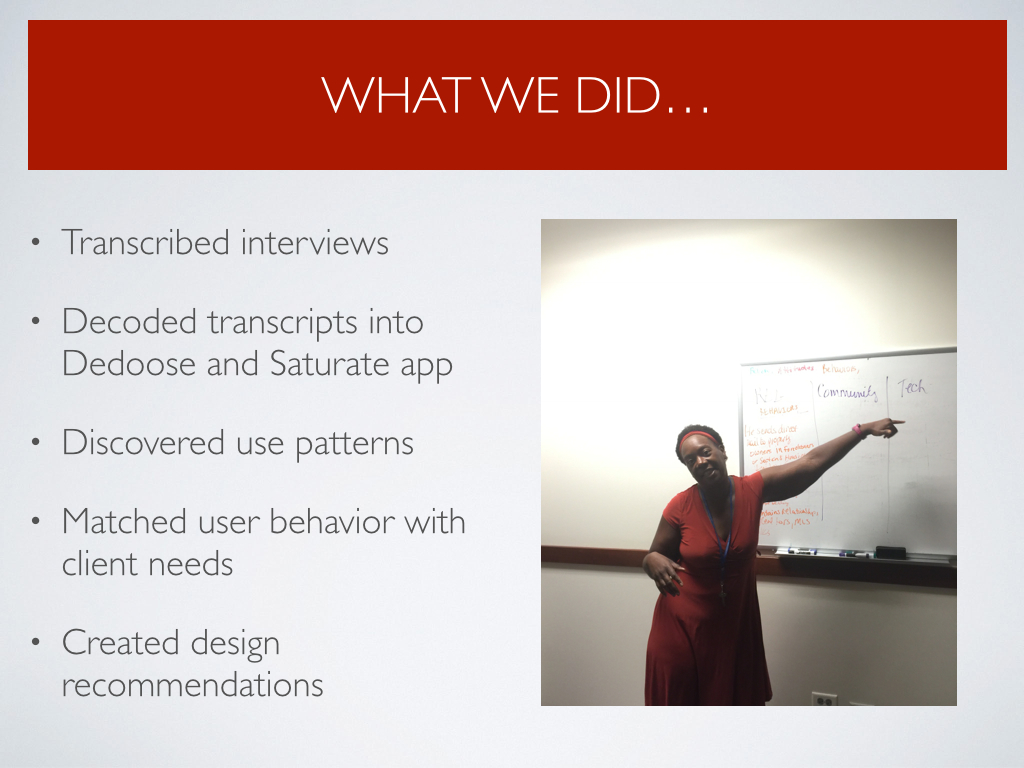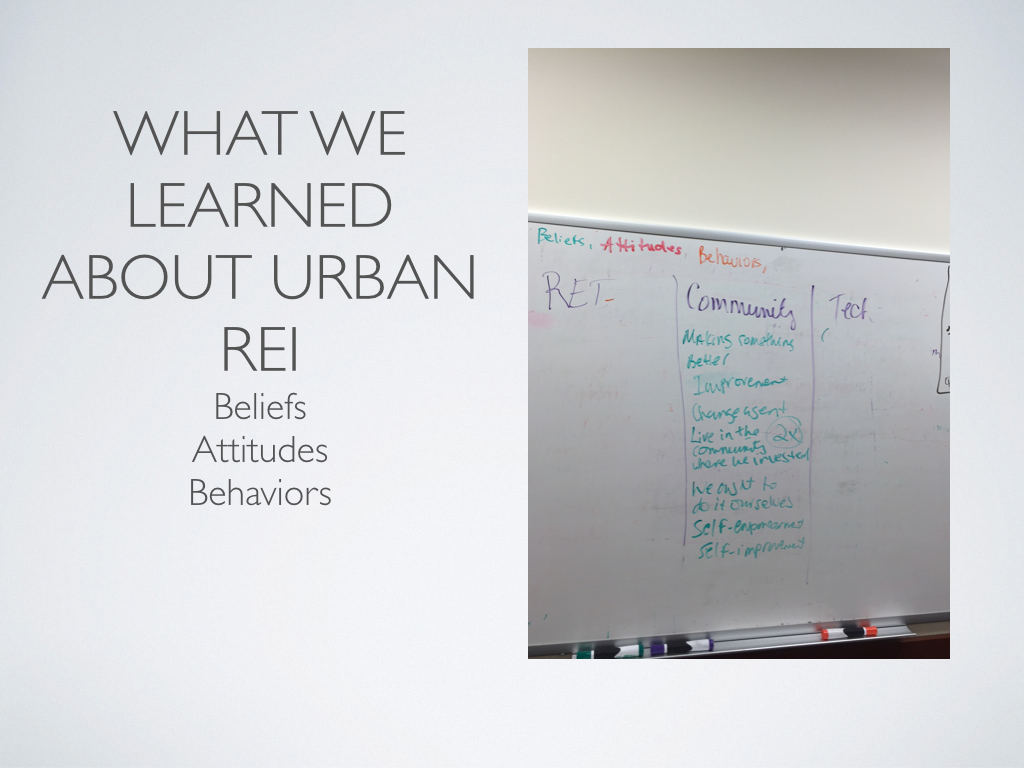The Situation
Ujammaa, a community organization located in Englewood on the south side of Chicago created a community land trust. Their mission:
- To prevent land loss to gentrification,
- To perserve the culture of the predominantly African-American neighborhood and
- To redevelop the depressed real estate within the low-income neighborbood.
The Problem
The average family income in Englewood is $11,000. That's half the national poverty rate for a family of four. Englewood is also beset with criminal activity.
- More than 4,000 crimes were reported in the area in 2014, the 3rd highest of any Chicago neighborhood.
- It has a high homicide rate and it's crime rate is 106% of the national average.
- Also the plethora of vacant, neglected and boarded up abandoned properties present a safety and aesthtic hazardous.
In real estate curb appeal is paramount. There wasn't very much curb appeal to the properities being sold by the Ujamma Community Land Trust.
CHANGE THIS.....
TO THIS...
Our Solution
Ujamaa identified 22 properties vacant, unoccupied, run-down and created a master planned community around those properties. They got land, and worked with city, county and state officials and community but needed investors.
After speaking with a member of the Ujamaa Community Land Trust we decided that to sell real estate in this area we had to use a bit of magic. That is to help investors envision what the property could be with their help not so much what it actually is. I thought this was a perfect augmented reality project. The idea a real estate app that showed the future, not the present but in a completely realistic way.
The organization would provide the redevelopment resources including architects, engineers and contractors and the investors would provide the financial investment in the property.
Our job was to do the research to see if this design application was a good one.
Our UX Research
As part of our research we:
- Conducted Stakeholder interviews with Ujamaa Community Land Trust Board (5 people)
- Expert interviews with urban housing professionals (3 people)
- Expert interviews with Englewood residents (Town Hall)
- User interviews with urban real estate investors (6 people)
Our Discovery
We decoded our interviews by: - Decoded transcripts into Dedoose and Saturate app
- Discovered use patterns
- Matched user behavior with client needs
- Created design recommendations
Our Insights
- Common painpoints of REI
- Gaps between current services and what REI needed to do their investing
- Frustations REI had with current tools they used to invest
All investors said imagery was one of the most important aspects to real estate investing.
Investors frequently complained about the dizzying number of websites they had to go through to get information they needed; especially city/county records. Many of these records the community land trusts readily have easy access to.
Calculating cost of development versus return on investment was a key part of urban redevelopment planning for individual investors.
Our Design Recommendation
- Use SYC to promote contracting, engineering and other redevelopment resources for investors
- Have investors sign up for membership to receive SYC property listings but also tidbits about community growth.
- Use architectural drawings to help investors visualize properties as they could be.
- Use organization’s ties to city and county to provide hard-to-get information on properties to investors
- Invite local lenders, banks to also join SYC community
- Add SYC calculator to show investors property’s future value
Expressing the need for calculating value and costs as well as ROI
Thoughts on the imagery's importance in REI
